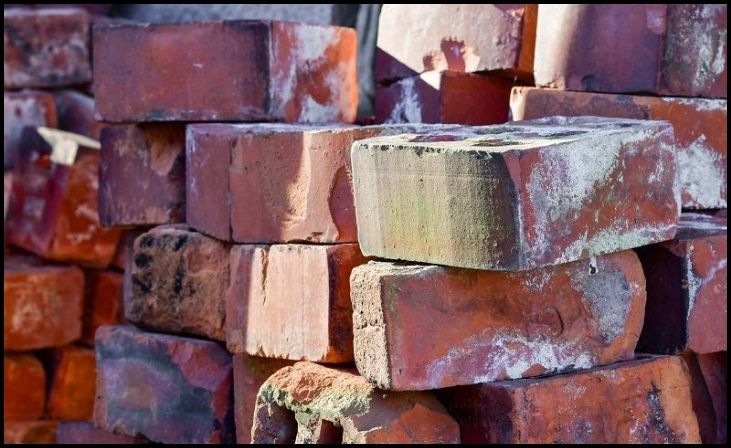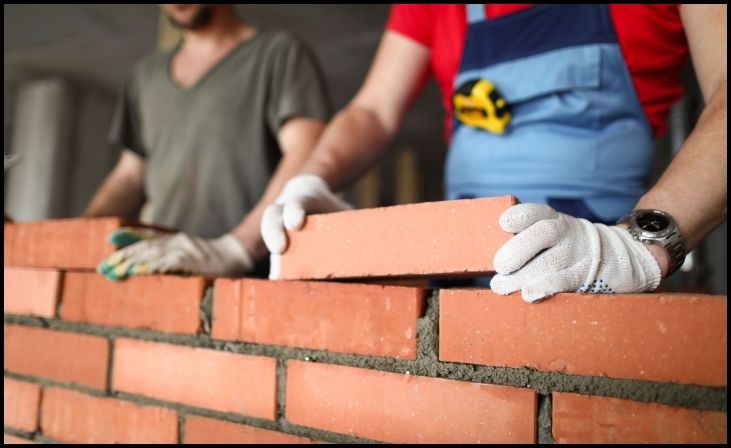Choosing the right materials for your masonry project is crucial to achieving durability, aesthetic appeal, and cost-effectiveness. Whether you’re building a new structure, restoring an old one, or embarking on a DIY home improvement, selecting the appropriate materials can make or break your project’s success. Masonry materials come in various types, including brick, stone, and concrete, each offering unique benefits and drawbacks. Understanding these options and their compatibility with your project’s requirements ensures a solid foundation and a visually pleasing result. In this guide, we’ll explore key factors to consider when choosing materials, from structural integrity to environmental impact, helping you make informed decisions for your masonry project.
10 Points On How to Choose the Right Materials for Your Masonry Project
1. Assess the Project Requirements

Before selecting materials for your masonry project, it’s crucial to assess the specific requirements of the project. Consider the type of structure you’re building, whether it’s a retaining wall, a home foundation, or a decorative feature. Each project has unique demands regarding strength, load-bearing capacity, and weather resistance. For instance, a retaining wall requires materials with high compressive strength to support the earth behind it, whereas a decorative garden wall may prioritize aesthetics over structural strength. Understanding these requirements will guide you in choosing materials that meet the functional and aesthetic needs of your project.
2. Evaluate Durability and Longevity
Durability and longevity are critical factors when choosing masonry materials. Different materials offer varying levels of resistance to weathering, erosion, and physical damage. For example, natural stone such as granite and limestone is known for its exceptional durability and can withstand harsh environmental conditions. On the other hand, concrete block is highly resistant to moisture and fire but may require periodic sealing to maintain its appearance. Consider the local climate and environmental conditions of your project site to ensure that the chosen materials will stand the test of time and reduce the need for frequent repairs or replacements.
3. Consider Aesthetic Appeal
Aesthetic appeal plays a significant role in material selection, especially for projects that are visible and integral to your home’s exterior or landscaping. Masonry materials come in various colors, textures, and finishes that can dramatically affect the overall look of your project. For instance, the warm tones of brick can provide a classic and inviting look, while the sleek, modern finish of concrete panels offers a contemporary aesthetic. Think about how the materials will complement the existing architecture or landscape and choose options that align with your design vision while enhancing the visual appeal of the project.
4. Assess Maintenance Requirements
Different masonry materials come with varying maintenance requirements. Some materials, like natural stone, may need periodic sealing to prevent staining and weather damage, while others, such as concrete block, are relatively low maintenance. When selecting materials, consider how much time and effort you are willing to invest in upkeep. For instance, while brick requires regular cleaning and occasional repointing to address mortar joint wear, engineered products like pre-cast concrete panels may offer easier maintenance with less frequent attention. Choosing materials that align with your maintenance preferences can help ensure long-term satisfaction with your masonry project.
5. Analyze Cost and Budget

Cost is a crucial factor in selecting masonry materials, as prices can vary widely based on type, quality, and availability. Conduct a thorough analysis of the materials you’re considering, including initial costs and potential long-term expenses. For example, natural stone may have a higher upfront cost compared to concrete block but could offer greater durability and aesthetic appeal. Additionally, factor in any additional costs such as installation, finishing, and ongoing maintenance. Establishing a clear budget and comparing material options within that budget will help you make an informed decision that balances quality and affordability.
6. Check Local Building Codes
Local building codes and regulations can significantly influence your choice of masonry materials. Different regions have specific requirements for materials used in construction to ensure safety, structural integrity, and compliance with environmental standards. For instance, areas prone to high seismic activity may have stricter guidelines for material strength and construction methods. Before finalizing your material choice, check with local building authorities or a licensed contractor to ensure that your selected materials meet all applicable codes and regulations, avoiding potential issues during construction and inspection.
7. Evaluate Environmental Impact
The environmental impact of masonry materials is an important consideration, especially with increasing awareness of sustainable building practices. Some materials, like recycled bricks or sustainably sourced stone, offer lower environmental impact compared to traditional options. Additionally, consider the energy efficiency of the materials you choose, as some may contribute to better insulation and reduced energy consumption. Opting for materials with a lower carbon footprint and supporting sustainable practices can not only benefit the environment but also enhance the overall value and appeal of your project.
Also Read: How to Determine the Perfect Slab Thickness for Your Pergola
8. Consider Material Availability
Material availability can affect the timeline and cost of your masonry project. Some materials may be readily available and cost-effective, while others might require special ordering or longer lead times. For example, common materials like concrete blocks are typically easy to find and source, while exotic or specialty stones may be less accessible and more expensive. Assess the availability of your chosen materials and consider potential delays or additional costs associated with sourcing them. Ensuring that the materials you select are readily available can help keep your project on schedule and within budget.
9. Consult with Professionals
Consulting with masonry professionals can provide valuable insights and guidance when choosing materials. Experienced contractors and architects can offer recommendations based on their knowledge of material performance, installation techniques, and project requirements. They can also help you navigate potential challenges and ensure that your material choices align with your project goals. Engaging with professionals early in the planning process can help you make informed decisions and avoid costly mistakes, ultimately contributing to the success of your masonry project.
10. Test Material Samples

Testing material samples is an essential step in the decision-making process for masonry projects. Obtaining samples allows you to evaluate the materials’ appearance, texture, and compatibility with your design before committing to a full order. For instance, you can assess how different bricks or stones look in various lighting conditions and how they complement other materials. Testing also provides an opportunity to check the materials’ performance characteristics, such as moisture resistance or structural strength. By reviewing samples, you can make more informed decisions and ensure that the materials meet your expectations and project requirements.
Conclusion
Selecting the right materials for your masonry project is essential for both functionality and aesthetics. By considering factors such as durability, maintenance, and cost, you can ensure that your project not only meets but exceeds expectations. Whether opting for traditional brick, natural stone, or modern concrete, understanding the characteristics of each material will help you create a lasting and beautiful structure. Make thoughtful choices and consult with experts to achieve the best results for your masonry endeavor.
FAQs
What factors should I consider when choosing masonry materials?
When selecting masonry materials, consider factors such as durability, maintenance requirements, cost, aesthetic appeal, and compatibility with your project’s design and environmental conditions.
Are there eco-friendly options for masonry materials?
Yes, eco-friendly options include recycled materials like reclaimed brick or stone, as well as sustainable materials like fly ash concrete, which reduce environmental impact while providing durability and strength.

